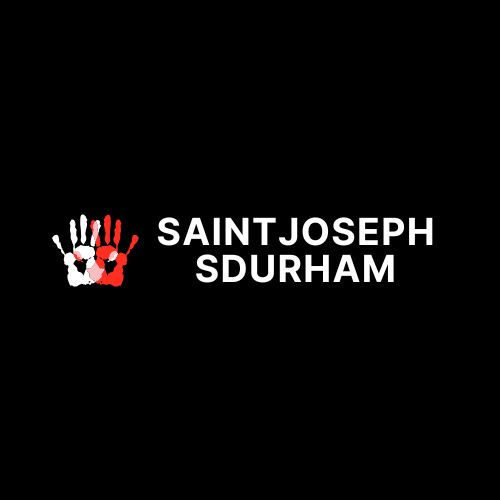The UK government provides financial support to help families and individuals manage essential costs through Budgeting Loans, which are offered by the Department for Work and Pensions (DWP). These loans are available to people who are receiving certain benefits and can help cover costs like furniture, rent, and other necessary expenses. But what does this mean for the £299 DWP Festival Relief Payment? In this article, we’ll explore if this payment will return in 2024 and explain everything you need to know about DWP Budgeting Loans and other available support.
What Are DWP Budgeting Loans?
DWP Budgeting Loans are designed to assist people who are already receiving specific benefits. These loans are interest-free, meaning that borrowers only repay the amount they borrow. The loans can help with expenses like furniture, rent, clothing, and other necessary costs. Repayments are deducted automatically from the person’s ongoing benefits, making it easier for them to manage the loan.
Eligibility Criteria for Budgeting Loans
To be eligible for a Budgeting Loan, you must have been receiving one or more of the following benefits for at least six months:
- Income Support
- Income-based Jobseeker’s Allowance
- Income-related Employment and Support Allowance
- Pension Credit
It is important to know that if you are on Universal Credit, you cannot apply for a Budgeting Loan. Instead, you can apply for a Budgeting Advance. Additionally, those who have been involved in industrial action or who owe more than £1,500 in Crisis Loans or Budgeting Loans are not eligible for these loans.
How Much Can You Borrow?
The amount of money you can borrow through a Budgeting Loan depends on several factors, including your status and whether you have children. The maximum loan amounts are as follows:
- Single: £348
- Couple: £464
- Single or Couple with Child Benefit: £812
However, the actual loan amount may be lower, depending on factors like your ability to repay, any savings you have, and whether you owe money from previous loans. If you have savings of over £1,000 (£2,000 for people aged 63 or older), the loan amount may be reduced.
Repayment Terms
From December 2024, the repayment period for Budgeting Loans has been extended from 12 months to 24 months. This change allows borrowers to make smaller, more manageable repayments. The repayments are automatically deducted from the person’s ongoing benefits. If your benefit payments stop, you will need to make other arrangements to repay the loan.
How to Apply for a Budgeting Loan
There are two ways to apply for a Budgeting Loan:
- Online Application: You can complete an application form on the official DWP website. This is the quickest way to apply, and you will typically receive a decision faster.
- Postal Application: You can download and fill out the SF500 form from the DWP website, then mail it to the address given. This process may take longer for a decision.
You will need to provide personal and financial details as part of your application. You can also choose how you want to be contacted (via email, text, or letter). Once you apply, you will usually receive a decision within 7 days if you applied online, or 21 days if you applied by post.
Accepting the Loan
Once your Budgeting Loan application is approved, you must formally accept the loan offer. If you applied online, you will receive instructions on how to accept via email or text. For postal applications, you must sign and return the acceptance letter using the pre-paid envelope. The loan funds will typically be sent within 7 days for online applicants and 21 days for postal applicants.
What Can a Budgeting Loan Be Used For?
Budgeting Loans can be used for a wide range of essential expenses, including:
- Furniture and Household Appliances: Items like beds, washing machines, and refrigerators.
- Clothing and Footwear: Clothes needed for everyday wear or special occasions.
- Rent in Advance: Helping with upfront rental costs when moving to a new home.
- Moving Costs: Expenses for relocating, such as hiring a removal van.
- Home Maintenance: Essential repairs or improvements to your home.
- Home Security: Installing locks or security systems to protect your home.
- Travel Expenses: Travel within the UK, such as getting to a new job.
- Maternity and Funeral Costs: Expenses for childbirth or funerals.
Will the £299 DWP Festival Relief Payment Return in 2024?
The £299 DWP Festival Relief Payment was introduced to assist people struggling with the costs of festivals, but it is not yet confirmed whether it will return in 2024. While it provided temporary financial relief, it is important to stay updated on any new announcements from the UK government or the Department for Work and Pensions (DWP) regarding any similar support or payments in 2024.
Conclusion
The DWP Budgeting Loan scheme is an essential service that helps people cover necessary expenses without paying interest. With the new 24-month repayment plan, it is now even easier for borrowers to manage the repayment process. However, it is still uncertain if the £299 DWP Festival Relief Payment will return in 2024. Be sure to check the official DWP website for updates on any new relief payments or schemes.
FAQ’S
1. Will the £299 DWP Festival Relief Payment return in 2024?
As of now, it is not confirmed whether the £299 DWP Festival Relief Payment will return in 2024. The UK government has not yet made any announcements about renewing this specific payment, so it’s important to keep an eye on official updates from the Department for Work and Pensions (DWP).
2. Who is eligible for a DWP Budgeting Loan?
To qualify for a DWP Budgeting Loan, you must have been receiving certain benefits, such as Income Support, Income-based Jobseeker’s Allowance, or Pension Credit, for at least six months. If you receive Universal Credit, you can apply for a Budgeting Advance instead.
3. How much money can I borrow with a DWP Budgeting Loan?
The amount you can borrow depends on your situation. For example, a single person can borrow up to £348, a couple can borrow up to £464, and if you have children, you can borrow up to £812. The loan amount may be reduced based on savings or existing debts.

